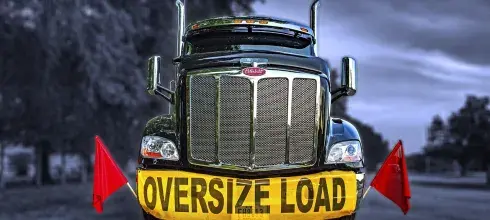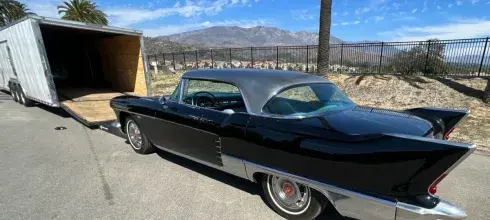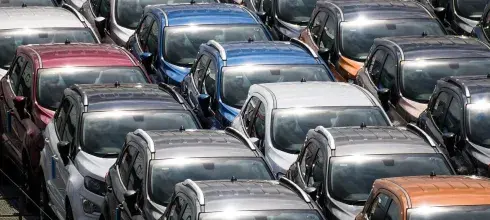Should your car break down in the middle of a journey, the simplest solution is getting your car towed. However, before you rush to the phone consider the following question: Does towing damage your car?
Towing is a common occurrence, but it’s important to understand the potential risks and consequences and consider whether there are suitable and safer alternatives.
Is towing bad for your car - Why it’s important to know
It’s important to know whether towing can damage your car for several reasons. Most importantly, it will help you decide whether to go ahead and get towed or opt for another form of transportation such as car shipping.
Secondly, it’ll help you appreciate what precautions to take to prevent potential damage from occurring. If you know the risks involved with different towing methods, you’re more able to make an informed decision and choose a reputable and experienced tow-truck operator who will handle your car with the care it deserves.
Distinct types of towing methods
There are several methods commonly used for towing a vehicle. The three most common are flatbed, dolly, and chain towing. Each method comes with unique advantages and disadvantages and it’s important to understand what these are.
Flatbed towing
The safest and most popular towing method is flatbed towing. It involves a truck with a flatbed that can be lowered to the ground or tilted.
The truck will be driven into position and the vehicle driven onto the flatbed and then secured using chains or straps. A car being towed in this way has all four wheels off the ground. This reduces wear and tear since there is no contact between the car’s tires and the road.
A flatbed truck can safely transport any type of vehicle, from large trucks, sports cars, and luxury cars to motorcycles and SUVs. An advantage of flatbed towing is that it makes loading and unloading in tight spaces easier.
Dolly towing
With dolly towing, a small two-wheeled trailer with ramps is used to tow the vehicle. The ramps allow the front two wheels of a car to be suspended off the ground while the rear wheels remain in contact with the road.
This type of towing method is an excellent solution for short distances. However, it’s not suitable for longer journeys because it puts a tremendous amount of stress on a car’s suspension system.
The biggest advantage of dolly towing is that small vehicles can be towed without needing a full-sized tow truck. You’ll often see a towing dolly used by RV owners to tow a small car behind their rig.
Hook and chain towing
Hook and chain towing used to be an extremely popular method, but over the years it’s become less popular because of the disadvantages associated with it.
This method uses a hook or series of chains that are attached to a vehicle’s chassis. Front-wheel drive vehicles are towed by their front end. Read-wheel drive cars are towed from the back.
Here at SGT Auto Transport, we wouldn’t recommend hook and chain towing because it can cause damage to a car’s undercarriage, suspension, and various other components.
If you’re thinking about towing your car, it’s important to think about which towing is best suited for your situation and vehicle before you go ahead and have it towed.
Factors to consider if your car is going to be towed
If you want to reduce the risk of damaging your car when it’s being towed, there are some crucial factors you should consider.
The weight of your vehicle
If your car is too heavy for the tow truck, it puts unnecessary stress on your vehicle’s engine, brakes, and transmission. Always check that the tow truck is weighted for the weight of your car before you have it towed.
The speed of the tow truck
The condition of your car is also affected by the speed at which the tow truck travels. If the driver drives too fast, it could put needless stress on your car and it also increases the risk of an accident. Choose a reputable towing company and you can be certain the drivers will follow safe driving practices and travel at the appropriate speeds.
Condition of the road
The condition of the road plays a key role in how well your car withstands being towed. If the road is rough or uneven, it could cause additional wear and tear on your car’s suspension system and tires.
Transmission type
The type of transmission your car has can also affect how safely it gets towed. A car with an automatic transmission shouldn’t be dolly-towed or hooked up with chains. The safest method for an automatic car is on a flatbed.
Can towing damage your car
There are a few ways your car could be damaged if it’s being towed.
Suspension system damage
The suspension system is a very vulnerable part of your car, particularly when being towed. Pressure is put on certain components such as the shock absorbers, struts, and springs. The stress of being towed could cause additional wear or the components could break completely because they’re not designed for the additional weight produced when a car is being towed.
Signs to look for that might indicate suspension damage include a rough or bumpy ride, unusual noises when the car goes over bumps or rough terrain, and uneven wear and tear. If you suspect your car’s suspension is damaged, get it checked by a mechanic as soon as possible, for your safety and to prevent further damage.
Brake damage
If your car is being towed incorrectly, there is a risk of damage to the brakes. If they are engaged while your car is being towed, it could lead to overheating or complete brake failure because of the increased friction.
If a dolly is being used to tow your car and the parking brake is left on, it could cause considerable damage to the braking system.
Transmission damage
Your car’s transmission is also put under additional pressure and strain when it’s being towed. If not handled properly, considerable damage can occur. Automatic transmissions are easily damaged because of the fluid inside them that is under pressure.
If you want to tow your automatic vehicle over a long distance, for example, if you bought it online and need to get it home, it’s recommended that you request a flatbed tow truck rather than dolly towing.
Flatbed towing keeps all four of your car’s wheels off the ground, thus preventing transmission damage.
If your car has a manual transmission, there is a smaller risk of damage if it’s not towed correctly.
Now you know the risks of improper towing damage it could help you avoid costly repairs. Remember to always choose a reputable towing company and discuss any needs or concerns you might have with the tow truck driver.
Alternatively, book a car shipping service with SGT Auto Transport and your vehicle will be transported safely and securely, with zero additional wear and tear.
You might think it’s out of your price range but request a quote online and you’ll be amazed at how affordable auto transport services are.
Alternatively, call at (864) 546-5038 and speak with our shipping advisors or use our Live Chat option.
FAQs
Can you mess up a car by towing it?
Absolutely, yes you can. Towing a car can potentially cause damage to it, depending on how it’s done and what type of car you have. Common types of towing damage include bumper damage, tire and windshield damage, and transmission damage.
Is towing bad for the transmission?
Yes, towing can be bad for your car’s transmission if it’s done improperly or excessively.
Why does towing destroy transmission?
There are several reasons why your car’s transmission can get damaged when your car is being towed. Potential causes include:
- Automatic transmissions use a torque converter which allows the ending to turn at a different speed than the transmission input shaft. This converter is very inefficient at low RPMs and high torque, which causes it to generate a lot of heat in the transmission fluid. When an automatic car is towed with the driving wheels on the ground, the torque converter spins without proper lubrication and cooling. You can avoid this kind of damage by using a tow dolly or flatbed truck or towing your car with the driving wheels off the ground.
- A car with a manual transmission is less likely to get damaged when being towed, if the car is in neutral, and the parking brake is released. However, be aware that some manual transmissions may require lubrication from the engine, which will not be running when the car is being towed.
What can go wrong with towing?
Many things can go wrong when a car is being towed. Some of them cause serious damage to the car or even injury to the people involved. Here are a few of the more common risks associated with towing:
- Deflated tires
- Windshield damage
- Body dents
- Scratches to the interior
- Alignment issues
What happens if you tow too much?
Towing your car too much can lead to a variety of types of damage to the vehicle, both cosmetic and mechanical. Some possible issues include:
- Transmission damage
- Deflated tires
- Windshield damage
- Body dents
- Alignment issues
- Scratches to the interior







